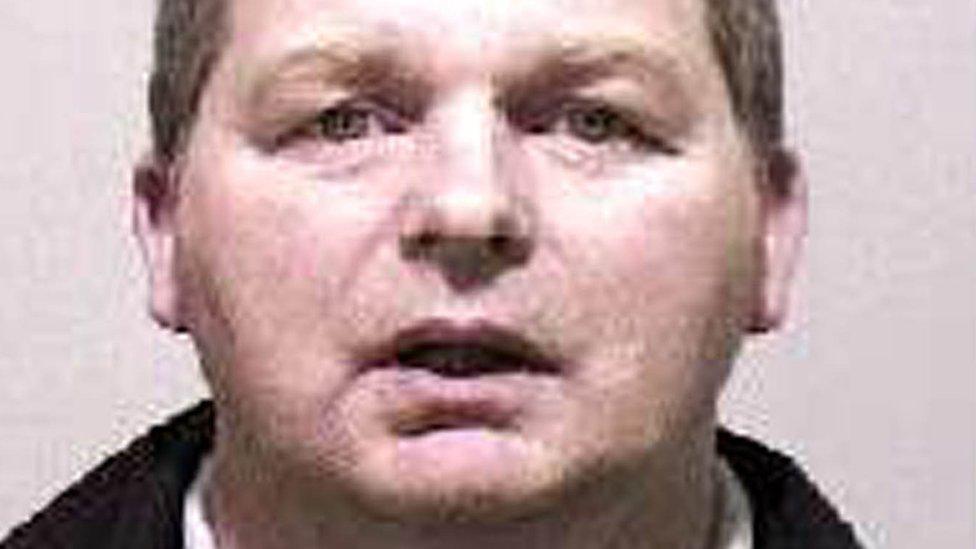Youth coach George Ormond guilty of sexually abusing boys
- Published
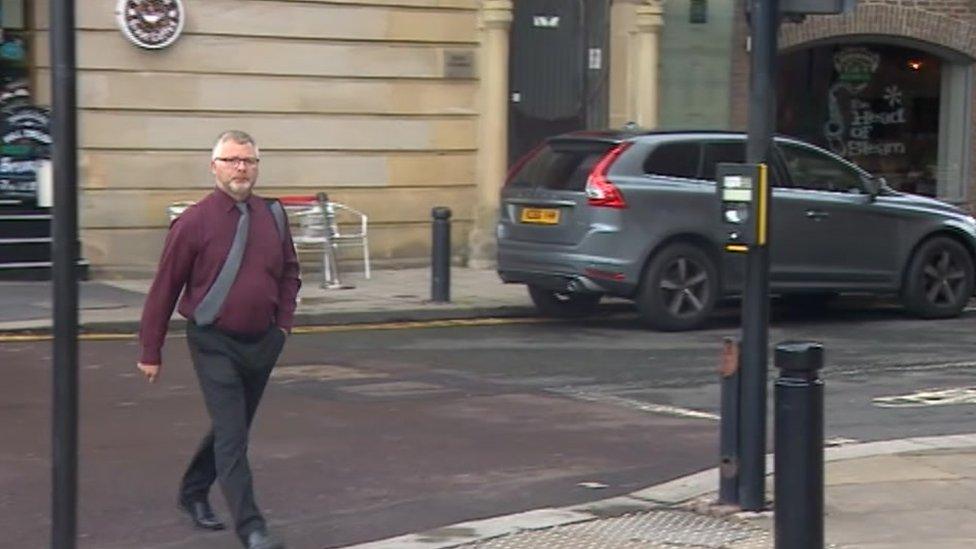
George Ormond was convicted of 36 offences
A youth football coach who went on to work for Newcastle United has been convicted of a string of sex abuse offences spanning 25 years.
George Ormond "used his position of power" to abuse 18 boys and young men between 1973 and 1998, Newcastle Crown Court heard.
The 62-year-old had denied all charges but was convicted of 35 charges of indecent assault and one of indecency.
At the end of the six-week trial, he was cleared of two further charges.
Ormond will be sentenced on Wednesday.
He coached a grassroots football club in the 1970s and 80s before going on to work for Newcastle United's youth system in the 1990s as what was described in court as a "kit man, gopher and dogsbody".
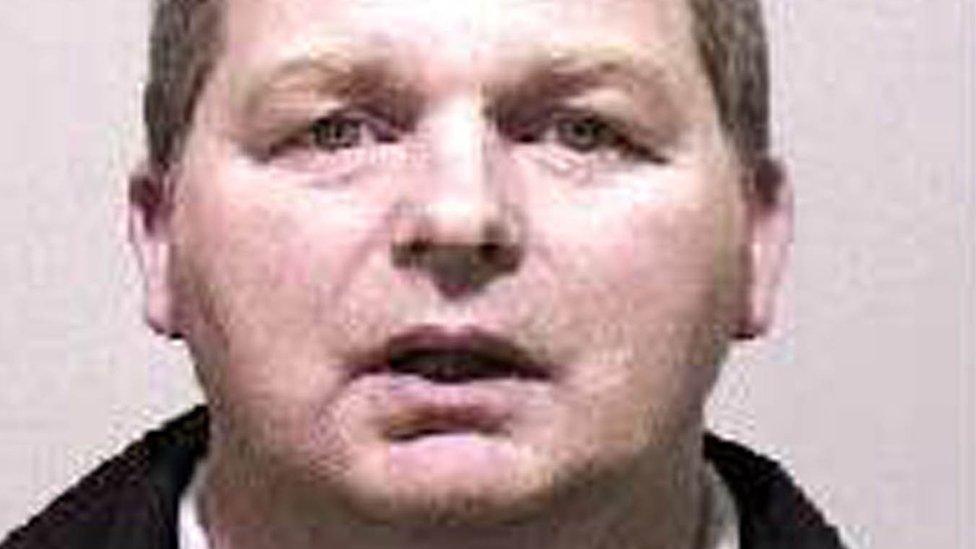
George Ormond was jailed in 2002 for sex offences
The jury heard Ormond "manipulated his position" and held out "glittering future" to young players, but could block their progress if they stood up against him.
The abuse took place at summer camps and in the back of his car.
He would indecently touch boys while massaging them or treating them for injuries and insist on them not wearing anything under their shorts, then check they had followed the rule.
During the trial, John Carver, who was Newcastle United's Centre of Excellence director in the 1990s, said he had respected and trusted Ormond and was "extremely shocked" when an allegation of abuse against him emerged.
He said he used new FA regulations that coaches involved in youth teams needed to have qualifications as a "way of getting George out of the football club".
The latest investigation into Ormond was sparked in 2016 by media reports of a sex abuse scandal in professional football.
One of his accusers said he spoke out after seeing Andy Woodward discuss about being abused by another coach, Barry Bennell, on the Victoria Derbyshire programme in 2016.

'A hidden tape recorder helped catch my abuser'
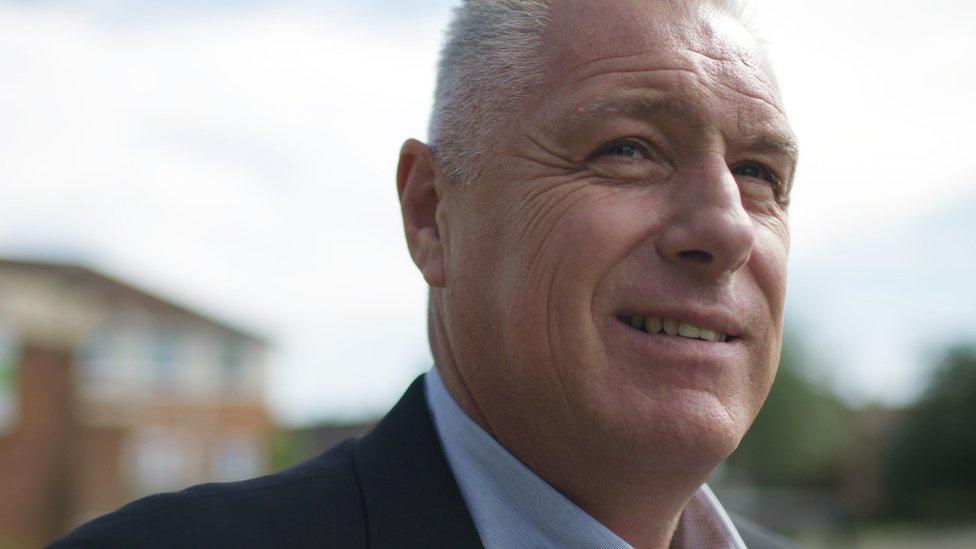
Derek Bell was abused by George Ormond but was "too scared" to speak out at the time
Former Newcastle United player Derek Bell has waived anonymity to speak out about how he was abused by George Ormond between the ages of 12 and 16.
He said: ""He used to say 'Listen, if you don't perform these acts on me then I'm not going to play you. I'm going to tell the scouts that your attitude is bad and I'll not play you for months'."
Years later, Mr Bell decided to confront his abuser and went to his house with a hidden tape recorder.
He said: "He never said sorry, but I actually caught him on tape saying 'Yes, I did do it'."
Mr Bell played that tape to his friends, who convinced him to take it to the police. Ormond was arrested and stood trial for the first time in 2002.
Read more about Derek Bell's ordeal at the hands of Ormond here.

Det Supt Mick Paterson, from Northumbria Police, said: "These young men had had ambition, they had dreams of going on to glittering footballing careers.
"Ormond was able - because he is a predatory paedophile - to have those dreams in his hands."
Helen Westerman, from the NSPCC, described Ormond's abuses as "absolutely shocking and sickening".
She said he "systematically abused" the boys and then "silenced them through threats, through blackmail, and telling them that their football career could be jeopardised".
In 2002, Ormond was jailed for six years after being found guilty of abusing seven boys under 16 between 1975 and 1999.
Newcastle United said it had fully co-operated with police and the FA, but declined to comment further.
The FA said it "welcomes" the verdict and "acknowledges the traumatic experience the victims and survivors have endured".
It advised victims to speak to Clive Sheldon QC whose team is conducting the independent enquiry into allegations of non-recent child sexual abuse in football.
The FA also advised any victims who have not yet come forward to speak to police or the NSPCC, and Sporting Chance, which can provide therapeutic support.
- Published3 July 2018
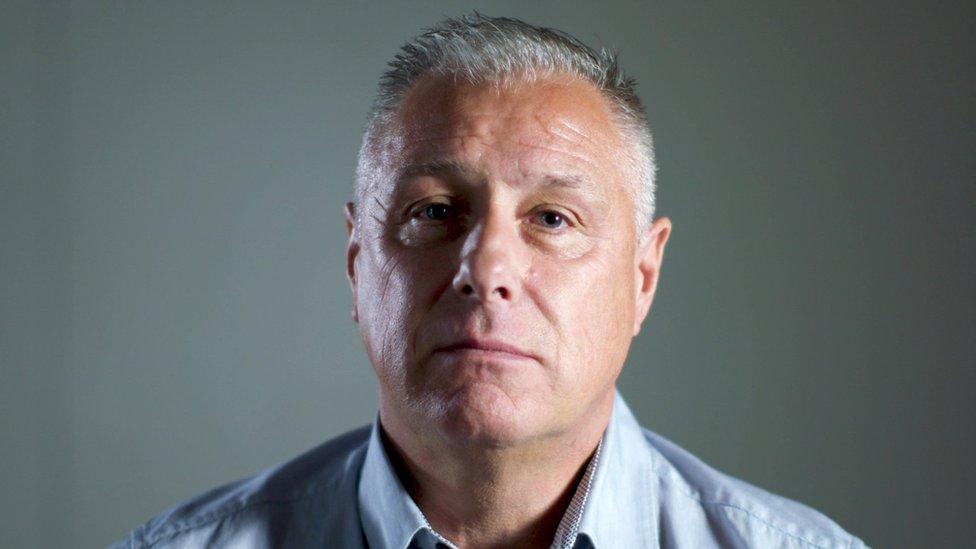
- Published18 June 2018

- Published13 June 2018

- Published23 May 2018
